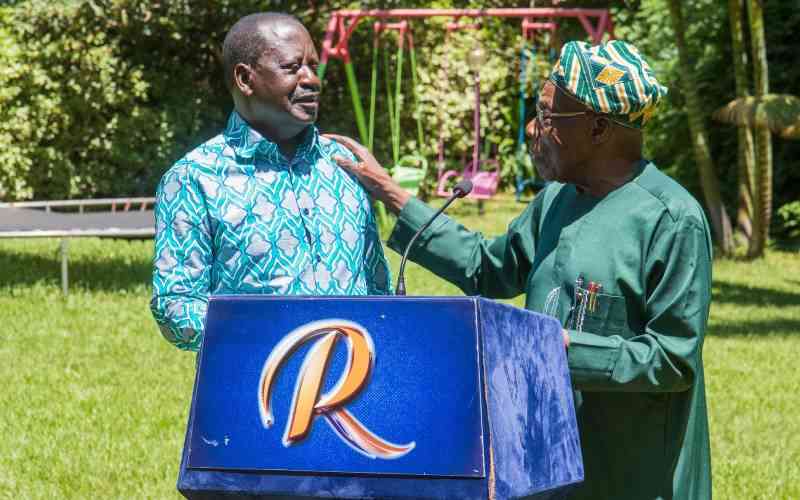×
The Standard e-Paper
Kenya’s Boldest Voice

Political scientists argue that even though Obasanjo's backing is significant, it is not enough to guarantee Raila the AU Chairperson position. [Emmanuel Wanson, Standard]
Azimio leader Raila Odinga will need the help of President William Ruto and the government if he is to actualise his ambition of becoming the Chairperson of the African Union Commission (AUC).